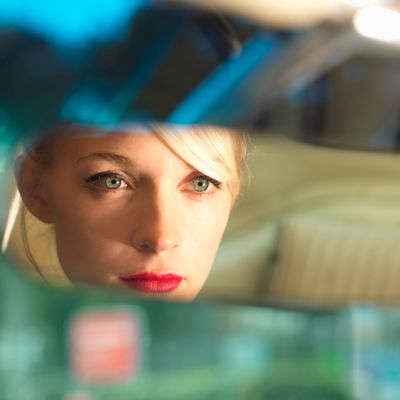
The Times published a piece this week about a new “trend” called mirror fasting, which consists of abstaining from looking at oneself in the mirror. Participants report increased self-esteem, “serenity,” less anxiety, and a lot of extra time to spend on productive things instead of picking at their faces. Even some therapists are recommending that their patients at least cut back on mirror time to help with self-acceptance.
As I typed the previous paragraph, our producer, Sally Holmes, came over to talk to me with chocolate cupcake on her teeth. And therein lies the paradox: You may feel like you look great without a mirror, but chances are you don’t look as good as you would had you used one. Have you ever looked at your reflection in a dimly lit bathroom and thought, Oh, I look awesome, only to get home later and realize you have mascara smudged all over the place? Or been too busy to look in a mirror all day and then realized that night that you’d been walking around with a huge zit? Or come home from a camping trip feeling all tan and fit and sexy and realized you are actually greasy, shiny, and have spider bites on your forehead?
Obviously, none of the above are life-ending disasters, but a good look in the mirror might have helped curtail them (well, not in the camping situation, because that’s just a lost cause). Not to mention, the opposite side of the spectrum (getting caught checking one’s reflection in a store window/subway door/other person’s sunglasses lens) is way more awkward. Long story short, mirrors are probably like red wine: two small servings are fine, even beneficial, but more than that and you run the risk of winding up on your bathroom floor crying.





